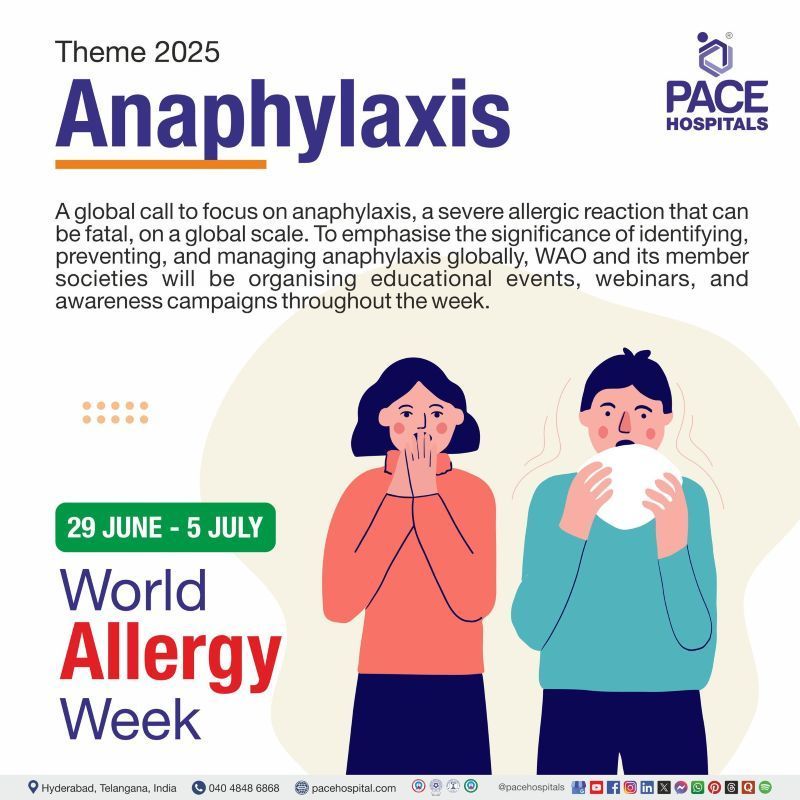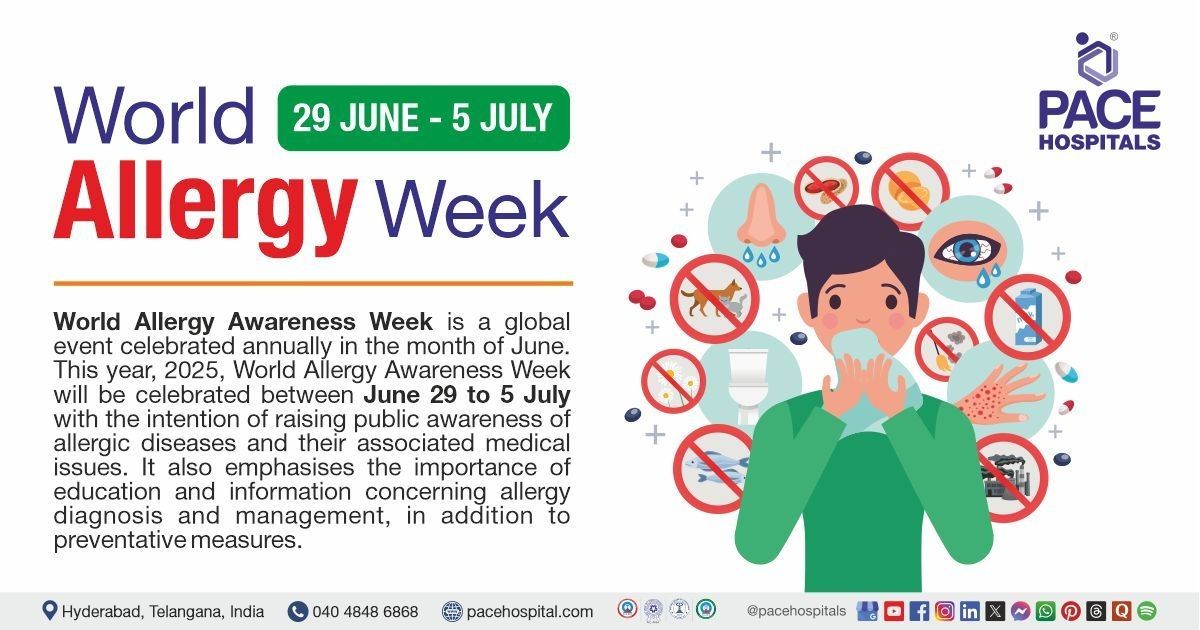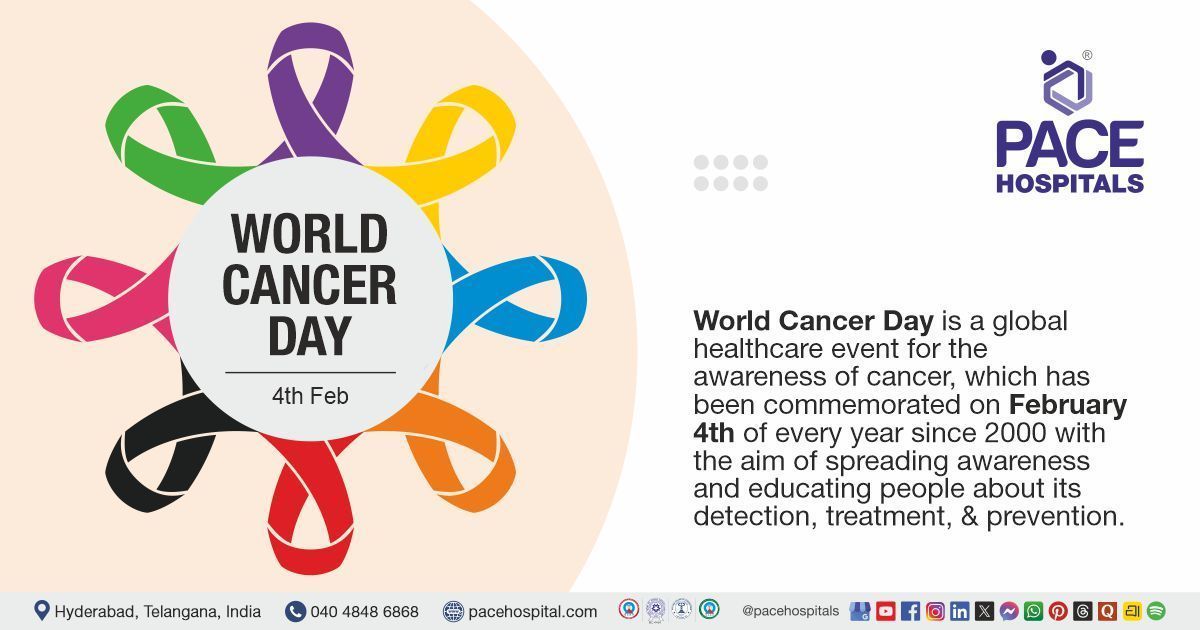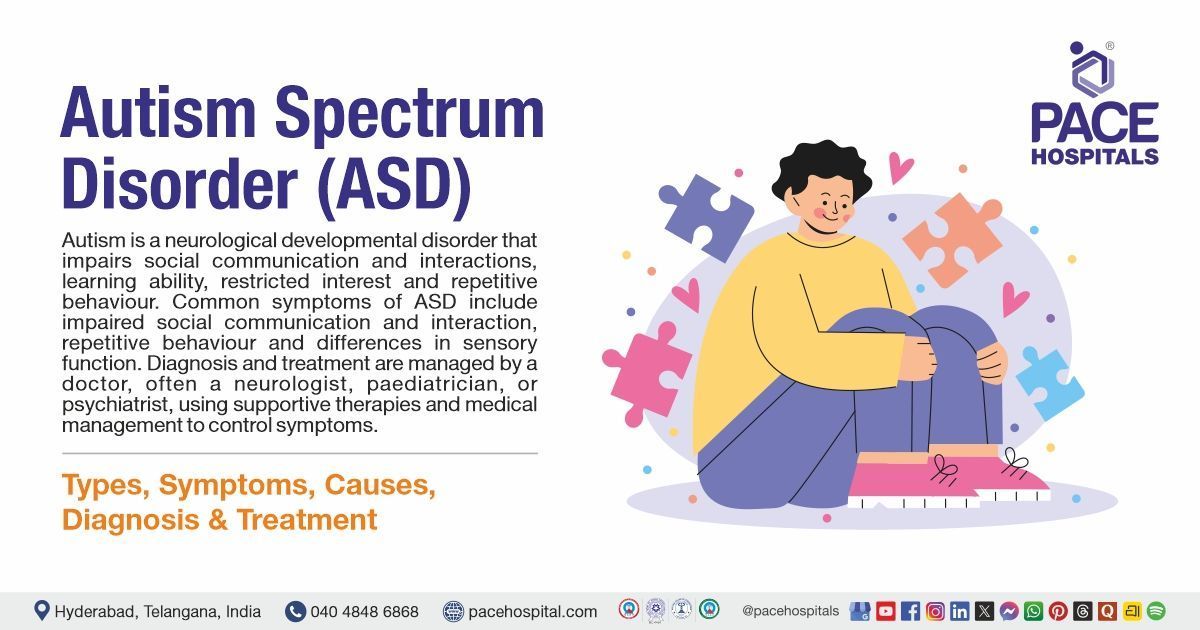World Allergy Week, June 29 to 5 July 2025 | Necessity, Theme & History
PACE Hospitals
World Allergy Awareness Week is a global event celebrated annually in the month of June. This year, 2025, World Allergy Awareness Week will be celebrated between June 29 to 5 July with the intention of raising public awareness of allergic diseases and their associated medical issues. It also emphasizes the importance of education and information concerning allergy diagnosis and management, in addition to preventative measures.
Necessity of World Allergy Week
Allergy-related diseases are rising quickly worldwide, in both developed and developing nations. According to several studies, affluent nations have a much higher prevalence of allergy diseases than underdeveloped nations. Several factors influence the prevalence of allergies or allergic disorders, including the population's predisposition to acquiring atopic conditions (allergen sensitivity). Individuals' susceptibility to allergies is primarily inherited and environmental. Around 8 to 10% of people worldwide have one or more allergic illnesses, ranging from mild rhinitis to severe anaphylaxis or asthma.
Environmental allergens, which can be found in the surroundings, are the causative factors for allergic or hypersensitivity reactions. Risk factors can increase the incidence of atopic disease directly or indirectly by altering allergic sensitisation or triggering symptoms in people who are already allergic. The two categories of allergy risk factors include the following:
- Host factors - The host variables that affect the likelihood of developing allergies are race, genetics, gender, and age, with genetics being the most crucial.
- Environmental factors - Environmental changes lead to immune modulation, which, in sensitive populations, promotes the development of allergic diseases.
Allergy is frequently underdiagnosed, undertreated, and underestimated despite its significant incidence.

World Allergy Week, June 29 to 5 July 2025, Theme
This year, 2025, the theme for World Allergy Week is “Anaphylaxis”. This theme focuses on anaphylaxis, a severe allergic reaction that can be fatal, on a global scale. To emphasise the significance of identifying, preventing, and managing anaphylaxis globally, WAO and its member societies will be organising educational events, webinars, and awareness campaigns throughout the week.
Year-by-Year Themes for World Allergy Week
- World Allergy Week 2023 theme (18-24 June 2023): Climate change worsens allergies
- World Allergy Week 2022 theme (5-11th June): Breathe Better; The Asthma & Allergy Connection
- World Allergy Week 2021 theme (13-19th June): Anaphylaxis; Be aware. Be prepared. Save lives.
- World Allergy Week 2020 theme (28th June - 4th July): Allergy care does not stop with COVID-19
History of World Allergy Week
World Allergy Week is an initiative of the World Allergy Organization (WAO), an international organization comprising 108 regional and national allergology and clinical immunology associations worldwide. Since its establishment in 1951, the organization has hosted 28 major congresses. The World Allergy Week activities were started in 2011.
Measures to Reduce Exposure to Allergy Triggers
- Stay indoors on dry and windy days
- Avoid gardening, removing weeds, or performing other tasks that may trigger allergens
- Have a shower after coming from outside to clear pollen that might stick to skin and hair
- Wear a mask while stepping outside, especially during spring
- Avoid drying clothes outside to avoid pollen sticking to clothes
Share on
Request an appointment
Fill in the appointment form or call us instantly to book a confirmed appointment with our super specialist at 04048486868











